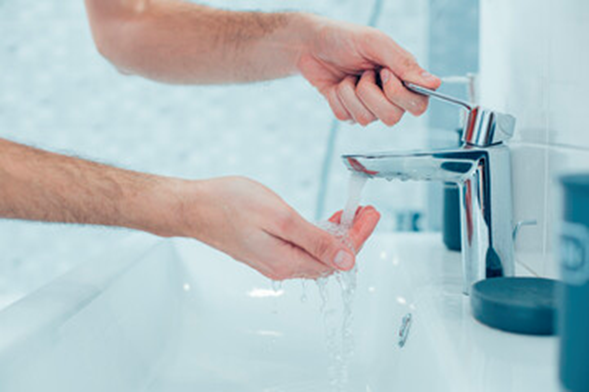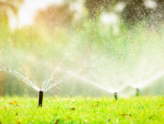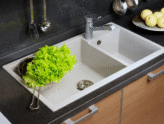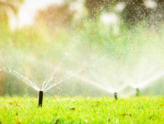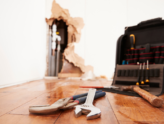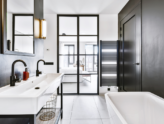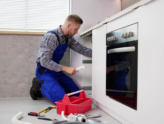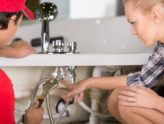10 Crucial Steps for Saving Water in Your Home
With the average household in Durham using approximately twenty-two cubic meters of water per year, water conservation is important in your home for both your bills and for the environment. This water usage is spread across the bathroom, your laundry practices and other needs like cooking and drinking with the most water being used in the bathroom and the least for cooking and drinking.
If you’re looking to step up your home water conservation, we’ve come up with ten crucial water-saving tips that you can employ to see your bills decrease, which include everything from checking for leaks to turning the taps off when you brush your teeth.
1. Check regularly for leaks
Checking pipes, appliances, and your toilet for leaks regularly can ensure you’re not losing water to cracks and holes. There are a few different ways you can check for leaks, such as toilet dye tests for toilet leaks and checking for visible signs of leaks like discoloration and mold.
Leaks are not only bad for your water bill, but they can also cause damage to your household, your furniture, and to walls and ceilings. Check regularly that your plumbing is in working order can ensure the safety of your home as well as efficiency. If you do find a leak, you should contact a local plumber in Pickering to address the issues.
2. Take shorter showers
Taking shorter showers means you’re not using up more water than is necessary. You could try ensuring your showers are under five minutes each day and you could opt not to wash your hair every day as this takes up more water, especially if you have long hair.
This step may take the commitment of the entire family, meaning you may need to ask your children to stick to the shorter shower rule too!
3. Install water saving fixtures
Water-saving fixtures are great for water conservation. They range from mechanisms for your toilet to different heads for your shower and are all designed to lessen the water your appliances use.
You could try a dual flush trigger on your toilet which allows you to decide how much water you use per flush. You could also try a more efficient showerhead. Switching from a 2.5 gallon per minute showerhead to a 1.5 gallon per minute head can see you save massive amounts of water in one quick switch.
You could also fit automatic shut-off nozzles in your shower. This is a great fixture to help with water conservation in the shower and it works by turning the shower off as you shampoo or shave to save water when water is not necessary. This fixture could go hand in hand with one of our previous water-saving tips and help to shorten showers too!
4. Turn the tap off
Like the aforementioned fixture, turning the tap off when water is not necessary is a really simple way to employ water conservation in your home. Turning the tap off when brushing your teeth, shaving, washing your hands, and washing produce are all ways to save as much water as possible.
5. Full loads for laundry and dishes
In Durham, laundry appliances account for 30% of all water usage and so cutting back on the number of times you run your washer will help you to save water in your home. Waiting until you have a full load of clothes, or indeed a full load of dishes for the dishwasher means using only necessary water.
If you do not have a dishwasher and wash plates by hand, you could do one load of washing up a day by leaving everything until the evening.
6. Install high efficiency appliances
One of the best water-saving tips we can give you is to upgrade to modern appliances that are much more efficient. Modern technology means that newer appliances use less water and less electricity, helping you to save on two bills!
When upgrading make sure to hire a local and trusted plumber in Pickering to do the job.
7. Store cold water in the fridge
Keeping cold water in the fridge can help to save water and ensure you have refreshingly cold water at all times of the day. By leaving a jug in the fridge you can save on the water you waste waiting for the water to run cold from the tap.
8. Recycle rain water
Allowing a container to fill up with water every time it rains can provide you with a more efficient way to water your garden. Recycled rainwater does just as much good for your garden as the water from the hose.
9. Only boil what is necessary
When you fill the kettle, only fill for what you need so as to not waste water when you empty and refill the kettle. As a bonus, this will save electricity too!
10. Use leftover cooking water
Using the leftover cooking water you used to boil potatoes or cook pasta is a great way of making your kitchen more circular. The starchy water leftover from this kind of cooking is actually great to use in baking bread!
Need a reliable and affordable plumber in Pickering?
If you’re looking for a plumber in Pickering, Caldwell Plumbing can offer fantastic services from leak detection to new appliance installation for clients across the Durham and Pickering region.
Why not contact them today and see what other water-saving tips they can help you to employ in your home.

